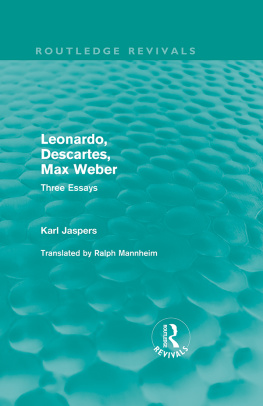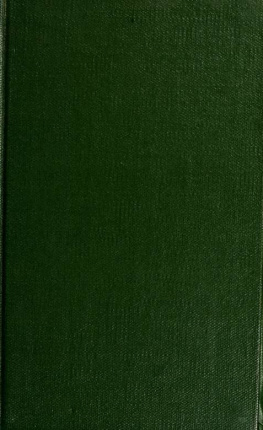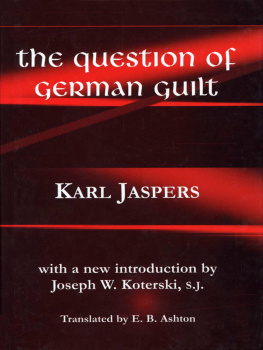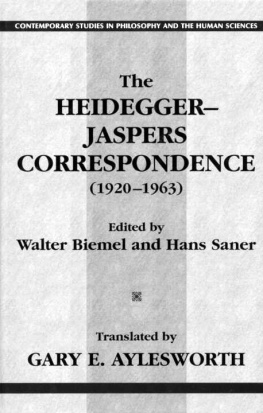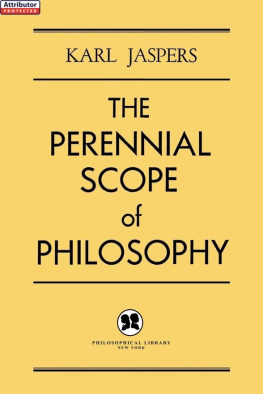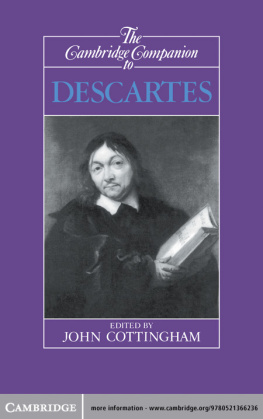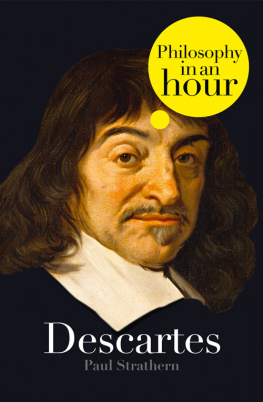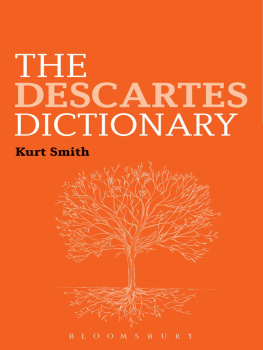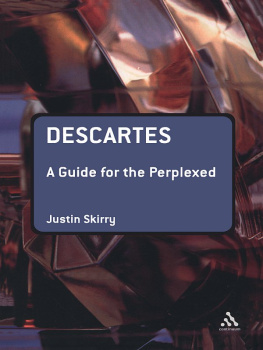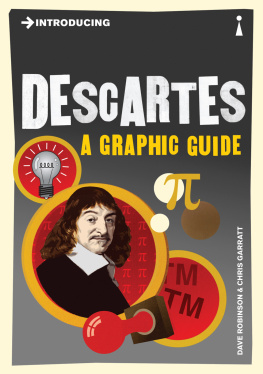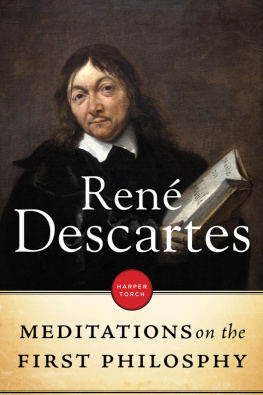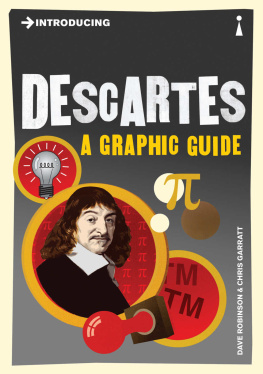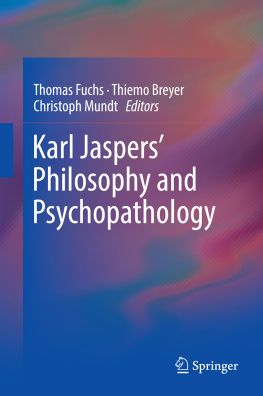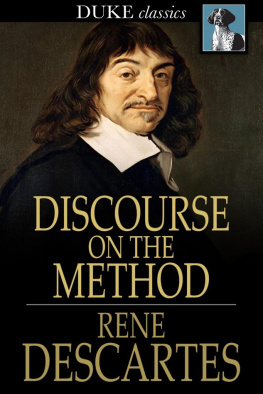RoutledgeRevivals

Leonardo, Descartes, Max Weber
First published in 1965, this collection of three essays by influential German philosopher Karl Jaspers deals with the response of the philosophical mind to the world of reality, with the search for truth.
In Leonardo, this search is shown in the thinking and the works of a supreme artist whose means of apperception are the senses. The essay on Max Weber commemorates a man Jaspers knew personally and ardently admired. The main essay in the collection is an exhaustive, three part study of Descartes: analysing Descartes new philosophical operation, Descartes Method, and the position of his philosophy within the wider historical context of philosophical thought.
Leonardo, Descartes, Max Weber
Three Essays
Karl Jaspers
Translated by Ralph Mannheim

First published in England in 1965
by Routledge & Kegan Paul Ltd
This edition first published in 2009 by Routledge
2 Park Square, Milton Park, Abingdon, Oxon, OX14 4RN
Simultaneously published in the USA and Canada
by Routledge
270 Madison Avenue, New York, NY 10016
Routledge is an imprint of the Taylor & Francis Group, an informa business
1953 by A. Francke AG. Verlag, Bern
1937 by Walter de Gruyter & Co., Berlin
1958 by R. Piper & Co. Verlag, Mnchen
English translation 1964 by Harcourt, Brace and World, Inc
All rights reserved. No part of this book may be reprinted or reproduced or utilised in any form or by any electronic, mechanical, or other means, now known or hereafter invented, including photocopying and recording, or in any information storage or retrieval system, without permission in writing from the publishers.
Publishers Note
The publisher has gone to great lengths to ensure the quality of this reprint but points out that some imperfections in the original copies may be apparent.
Disclaimer
The publisher has made every effort to trace copyright holders and welcomes correspondence from those they have been unable to contact.
ISBN 13: 978-0-415-55735-1 (hbk)
ISBN 13: 978-0-415-55789-4 (pbk)
ISBN 10: 0-415-55735-6 (hbk)
ISBN 10: 0-415-55789-5 (pbk)
LEONARDO, DESCARTES, MAX WEBER THREE ESSAYS
Other works available in English translation
THE GREAT PHILOSOPHERS
GENERAL PSYCHOPATHOLOGY
PHILOSOPHY AND THE WORLD
NIETZSCHE AND CHRISTIANITY
THE FUTURE OF MANKIND
TRUTH AND SYMBOL
MAN IN THE MODERN AGE
REASON AND EXISTENZ
THE ORIGIN AND GOAL OF HISTORY
THE WAY TO WISDOM
THE QUESTION OF GERMAN GUILT
LEONARDO, DESCARTES, MAX WEBER
Three Essays
by
Karl Jaspers
TRANSLATED BY RALPH MANHEIM

First published in England 1965 by Routledge & Kegan Paul Ltd
Broadway House, 6874 Carter Lane, London, E.C.4
Printed in Great Britain by The Compton Printing Works Ltd
London, N.1
Copyright 1953 by A. Francke AG. Verlag, Bern
Copyright 1937 by Walter de Gruyter & Co., Berlin
Copyright 1958 by R. Piper & Co. Verlag, Mnchen
English translation 1964 by Harcourt, Brace & World, Inc
No part of this book may be reproduced in any form without permission from the publisher, except for the quotation of brief passages in criticism
Acknowledgement is made for permission to use the quotations from The Philosophical Works of Descartes, translated by Elizabeth S. Haldane and G. R. T. Ross. Reprinted with the permission of Cambridge University Press.
Contents
L EONARDO has left us a few marvelous paintings in a poor state of preservation, notably the Mona Lisa and the Last Supper, a self-portrait whose authenticity is doubted, but which all who have seen it remember as the face of one of the worlds unique great men, and thousands of pages of notes and sketches. In addition we have the reports of contemporaries and his influence on other painters, who echoed his ideas in their works. The barest glimpse of Leonardo can still be gained from the ruins and fragments of his painting, from his daily notes, and from his influence on others.
Leonardo is famous as the universal genius who could do everything, as the artist who inaugurated the classical art of Italy, but whose tragedy it was that he failed to complete many of his great projects. Since Vasari it has been generally held that he squandered his talents and is consequently inferior to Raphael and Michelangelo, who were artists in their whole being and completed innumerable great works.
He is famous as a scientist. He has been called the founder of modern science. But this has been questioned on the ground that he did not use the methods of the mathematical sciences in his investigations, that the similarities between certain of his formulations and the principles of the future science are misleading, that most of the machines he designed were products of his visual imagination and could not have been built, that his application of mathematics is very limited and nowhere commensurate with the scientific acumen of Galileo.
He has less frequently been called a philosopher, an allegation that others have resolutely denied, arguing that he was lacking in the power to construct systematic ideas and concepts, that his numerous references to philosophy are without cohesion, and that he did not share in the continuity of the philosophical tradition.
It has been asked: was Leonardo essentially an artist or a scientist, or a philosopher, or something that cannot be subsumed under any of these established categories of intellectual endeavor? Leonardo became a mythical figure, the incarnation of mysteriousness.
Historians of art, of the sciences, of philosophy, have communicated the results of intensive investigations. From Goethe to Jacob Burckhardt and down to our contemporaries, men have tried to state what has moved them in Leonardo, to recall what has been forgotten, to restore what has been lost, to reveal the hidden.
I shall attempt to give an account of Leonardos philosophizing, describing first the character of his thinking, then its content, and its reflection in the painters way of life. Finally we shall look into Leonardos particular greatness, which perhaps transcends the distinction between art ist, scientist, and philosopher.
1. Leonardos thinkingand this is its distinctive featureis based entirely on the eye and the hand. What has existence for him must be visible; what he knows must be brought forth by the hand.
Leonardo praises the eye. It is less deceptive than the other senses. It reflects all the works of nature. Only through the eye can the beauty of the world be enjoyed, and solely for the sake of this vision is the soul content to be confined in its human dungeon. The loss of sight leaves the soul in a dark prison, without hope of ever again beholding the sun, the light of the whole world. Thus there is no man who would not rather lose the senses of hearing and smell than that of vision.
Goethe describes the consequences of this identification with the eye. Because Leonardos grasp of nature was directly visual, because his thinking was grounded in the phenomenon itself, he hit upon the truth without detours. As clarity and discernment of the eye belong to the realm of intellect, so our artist was in complete possession of clarity and intelligence.
Next page
